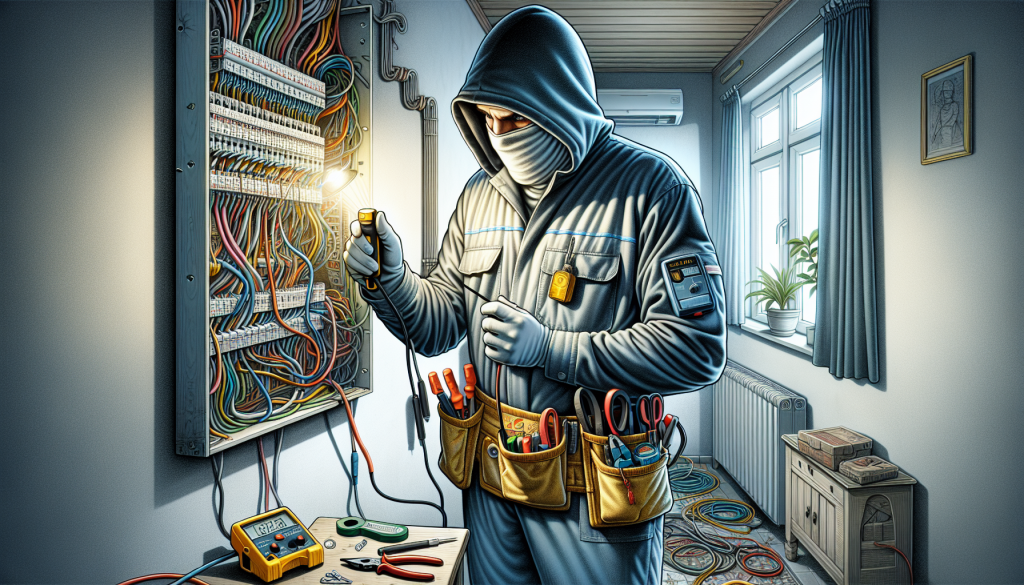Electrical Inspections for Safety
Keeping your electrical systems in check isn’t just smart—it’s essential. Regular inspections can catch potential problems before they turn into costly or dangerous issues.
Why You Need Electrical Inspections
Whether you’re at home or work, electrical inspections are a must. They help spot things like bad wiring or outdated systems that could lead to fires or accidents. According to SafetyCulture, skipping these checks can result in electric shocks or worse.
And it’s not just buildings that need attention. Your car’s electrical system needs love too. If you live in busy places like Toronto or Ottawa, regular checks can save you from breakdowns. Think about it—catching a bad battery or a wonky alternator early can save you a lot of headaches.
Want to know more about keeping your car battery in shape? Check out our guide on how to test a car battery. And if you’re wondering if your battery’s on its last legs, we’ve got you covered with signs of a failing battery.
OSHA’s Take on Electrical Safety
The Occupational Safety and Health Administration (OSHA) has been laying down the law on electrical safety since 1990. They say you should inspect your electrical gear at least once a year to keep things running smoothly and safely (OSHA).
OSHA’s guidelines aren’t just for show. They recommend yearly checks, but if you’re using equipment a lot, you might need to inspect it more often. And it’s not just about the gear—OSHA also stresses the importance of training. Knowing how to handle electrical stuff safely can make a big difference.
For car owners, this means staying alert to common electrical issues and knowing when to call in the pros. Thinking about upgrading your car’s electrical system? We’ve got tips for that too—check out our page on upgrading vehicle electrical components. And for a handy list of maintenance tips, see our electrical system maintenance checklist.
| Inspection Frequency | Suggested Timeframe |
|---|---|
| General Electrical Equipment | Annually |
| High-Use Equipment | Every 6 Months |
| Vehicle Electrical Systems | With Every Oil Change (Approx. 3,000 – 5,000 miles) |
Stick to these schedules, and you’ll keep your car and home running smoothly. For more tips on keeping your vehicle’s electrical system in top shape, visit our page on electrical system maintenance tips.
Residential Electrical Inspections
Keeping your home’s electrical system safe and functional is a big deal. Residential electrical inspections help spot potential problems and make sure everything’s up to code. Let’s break down the inspection process and the main areas inspectors focus on.
Home Electrical Inspection Process
You need residential electrical inspections for new builds, remodels, or when buying or selling a house. These checks ensure everything’s up to snuff with electrical codes and safe to use. Usually, an inspector from the local building code office will visit at least twice.
-
Rough-In Inspection:
- Happens when all electrical boxes, cables, conduit, and wires are in place.
- Must be done before walls are closed up and insulation is added.
- Allows a clear view of all wire runs from the service panel to fixtures and appliances.
-
Final Inspection:
- Occurs when the house is finished but before it’s lived in.
- All walls are closed, painting is done, floors are complete, and furniture is ready to move in.
- Ensures all circuits work, light fixtures are connected, and everything meets code and professional standards.
Inspectors want to make sure any DIY work is safe and up to code, giving you a chance to fix things if needed. If you’re doing the work yourself, getting on good terms with the inspector and following their advice can make the process smoother (The Spruce).
Key Areas Checked in a Home Inspection
During an electrical inspection, inspectors look for specific things to ensure safety and code compliance. Here are the main areas they check:
| Key Area | Description |
|---|---|
| Service Panel | Inspectors check the main service panel for proper labeling, secure connections, and the right circuit breakers. |
| Wiring | All wiring must be properly installed, with no exposed or frayed wires. Inspectors make sure wires are correctly routed and secured. |
| Grounding | Proper grounding of the electrical system is crucial for safety. Inspectors verify that grounding rods and connections are in place. |
| Outlets and Switches | Inspectors ensure that all outlets and switches work correctly, are properly installed, and meet code requirements. |
| Light Fixtures | All light fixtures must be safely installed and securely connected. Inspectors check for proper operation and adherence to code. |
| GFCI Protection | Ground Fault Circuit Interrupters (GFCIs) are required in areas with water exposure, like kitchens and bathrooms. Inspectors test these for functionality. |
Knowing what inspectors look for can help you prepare for a residential electrical inspection. For more detailed tips on maintaining and troubleshooting your home’s electrical systems, check out our articles on electrical system maintenance checklist, electrical system troubleshooting guide, and electrical system enhancement services.
Making sure your home’s electrical system is up to code and safe not only protects your property but also gives you peace of mind. Whether you’re building new, remodeling, or getting ready to sell, a thorough electrical inspection is a must.



